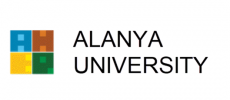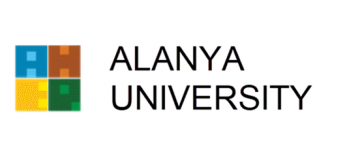COURSE CONTENTS
ASÇ 101 GASTRONOMY AND COOKING HISTORY
The origin of the term gastronomy: The first studies in the field of gastronomy in Ancient Greece, gastronomy studies during the Roman Empire, gastronomy studies in the Middle Ages, 18th and 19th centuries: The scientific foundations of gastronomy, 20th century: “Molecular gastronomy” as a scientific discipline, the physical and chemical background of gastronomy, the cultural, social, artistic, economic, and practical dimensions of gastronomy.
ASÇ 103 BASIC FOOD PRODUCTION-I
Types of vegetables, preparing vegetables for cooking, international cutting methods, boiling (bouilli) method, steaming method, cooking in sauce (breze) method, cooking in its own juices (étuvée) method, glazing method, gratin method, sautéing method, frying method, grilling method, poaching method, vegetable preservation methods.
ASÇ 105 NUTRITION PRINCIPLES AND MENU PLANNING
Healthy diet, digestion, absorption and transport, carbohydrates, fats and proteins, energy balance and body composition, water-soluble vitamins, fat-soluble vitamins, water and trace elements, food safety and food labels, menu planning according to nutrition principles, implementation of menus according to nutrition principles.
ASÇ 107 FOOD AND BEVERAGE SERVICE
The phenomenon of eating out, food and beverage establishments and their characteristics, organization of food and beverage service, principles of food and beverage service, tools used in food and beverage service, preparatory work in food and beverage service, food
ASÇ 111 BAKERY PRODUCTION
Basic information on dough, pastry, and dessert preparation techniques; essential information on raw materials, tools, and equipment used in industrial kitchens for bakery production; their application in practice.
ASÇ 102 BASIC FOOD PRODUCTION-II
Meat, poultry, fish, vegetable broths and stocks, basic sauces and thickeners, soups, pre-cooking preparation and marinating of food groups, cooking food groups using appropriate cooking techniques, salads and salad dressings, pasta, rice, dishes prepared with legumes, dishes prepared with grain products.
ASÇ 104 BAKERY PRODUCTS
Pastry and baking terminology, Creams and fillings, Sponge cake and biscuit making techniques, Sweet sauces and coatings, Cake, fruit sauce, and dough decoration, Muffin and cake varieties, Cookie making techniques, Profiterole and choux pastry making, Introduction to leavened doughs, Savory and sweet tart doughs and fillings, Chocolate processing techniques and truffle chocolate making, Mousse making techniques and varieties.
ASÇ 108 SENSORY ANALYSIS
The importance of originality in the food and beverage industry, specialty products, requirements, Studies to be conducted to obtain various specialties, food quality characteristics. Sensory evaluation, definitions, importance, purposes of use in the food industry and food and beverage businesses. Sensory evaluation panel room, product and panel controls, panelist selection. Used in sensory evaluation
ASÇ 110 COLD KITCHEN AND APPETIZERS
Cold sauces and marinades, Salads, Cold appetizers from Turkish cuisine, Cold appetizers from world cuisines, Cold hors d'oeuvres, Cold canapés and sandwiches, Cold soups, Olive oil dishes, Pâté, galantine, and mousses, Cold buffet, Preparation and presentation of cold dishes, Preparation and decoration of cold buffets
ASÇ 201 FOOD AND BEVERAGE COST CONTROL
Cost and expense concepts, fixed, variable, average, marginal, and total costs, food and beverage cost control, purchasing: purchasing procedures and methods, supplier selection, accounting controls related to purchases, receipt control, receipt procedure, storage, distribution, and inventory control, production: menu planning and sales forecasts, revenue control, mechanical revenue control methods, food and beverage cost control methods: simple cost control method, detailed cost control method, standard cost method, potential cost control method, standard recipes and portion cost calculation, sales price determination
ASÇ 203 TURKISH OTTOMAN AND ANATOLIAN CUISINE
General information about Turkish, Anatolian, and Ottoman cuisines, the birth of Anatolian cuisine: Sumerians, the historical development of Anatolian cuisine: Hittite culture and cuisine, historical development of Anatolian cuisine: Hellenistic period, historical development of Anatolian cuisine: Roman and Byzantine periods, Central Asian Turkish cuisine, interactions during migrations in Central Asian Turkish cuisine, Seljuk cuisine, Anatolian Seljuk cuisine, Ottoman cuisine
ASÇ 205 BUFFET, COCKTAIL PARTIES, AND BANQUETS
Definition, characteristics, and types of buffets; planning and preparatory work for buffet events; creating buffet menus and pricing; implementing buffet menus; cocktail definition, characteristics and types, planning and preliminary preparation work for cocktail events, creating cocktail menus, pricing, implementing cocktail menus, banquet definition, characteristics and types, planning and preliminary preparation work for banquet events, creating banquet menus, pricing, implementing banquet menus.
ASÇ 207 BEVERAGE PRODUCTION
Beverage culture and historical development, beverages in traditional Turkish culinary culture, cold non-alcoholic beverages, production processes of cold non-alcoholic beverages, cocktails prepared with cold non-alcoholic beverages, serving cold non-alcoholic beverages/cocktails, alcoholic beverages, production processes of alcoholic beverages, cocktails prepared with alcoholic beverages, serving cold non-alcoholic beverages/cocktails, hot beverages, production processes of hot beverages, serving hot beverages, selection of beverages suitable for food groups.
ASÇ 209 GASTRONOMIC TOURISM
Types of tourism, Cultural tourism and gastronomic tourism, The economic dimension of gastronomic tourism, The social and cultural dimension of gastronomic tourism, Sustainability in gastronomic tourism, Gastronomic tourism as a destination marketing tool, Destination image and gastronomic values, Gastronomic tourism around the world: France, Italy, and Spain, Gastronomy tourism around the world: USA, Canada, South Africa, and Thailand, Turkey's gastronomic values as a tourist product, Geographical indications, Evaluation of Turkey's gastronomy tourism potential, The importance of food and beverage/accommodation businesses in gastronomy tourism.
ASÇ 211 VEGETARIAN CUISINE
Definition and characteristics of vegetarian nutrition, the emergence and historical development of vegetarian nutrition culture, the philosophical and ethical dimension of vegetarian nutrition, the effects of vegetarian nutrition on health, ingredients used in vegetarian cuisine, alternative plant-based protein sources, adequate and balanced nutrition with plant-based foods, vegetarian nutrition for special circumstances (pregnant women, the elderly, children), soups in vegetarian cuisine, appetizers and hors d'oeuvres in vegetarian cuisine, vegetable dishes in vegetarian cuisine, adapting traditional recipes to the vegetarian diet, preparing vegetarian menus in accordance with nutritional principles, sample vegetarian menu application
ASÇ 202 REGIONAL CUISINES
Information and practical work on Mediterranean cuisine, Aegean cuisine, Thracian cuisine, Black Sea cuisine, Eastern Anatolian cuisine, Southeastern Anatolian cuisine, and Central Anatolian cuisine.
ASÇ 204 WORLD CUISINES
Asian cuisines: Iranian cuisine, Russian and Central Asian cuisines, Indian cuisine, Chinese cuisine, Thai, Korean, and Japanese cuisines. European cuisines: Italian cuisine, French cuisine, Spanish cuisine, South American cuisines, Central American cuisines, North American cuisines, African cuisines, Australian and New Zealand cuisines.
ASÇ 206 NUTRITION ANTHROPOLOGY
Nutrition in hunter-gatherer societies, the transition to settled life and agriculture, changes brought about by the agricultural revolution in human communities, nutrition culture and social structure: The Sumerians, Hittites, Ancient Egyptian and Chinese civilizations, Ancient Greek and Roman civilizations, Turks in Central Asia and Anatolia, Native Americans, Aborigines, the industrial revolution and the birth of modern kitchens, developments in the food industry after World War II, technology and nutrition in today's societies.
ASÇ 208 SECTOR ANALYSIS AND CASE STUDY
The emergence and historical development of the food sector, the emergence and historical development of food and beverage businesses, the place and importance of the food and beverage sector within the economic structure, the labor market and labor needs in the food and beverage sector, the financial structures of food and beverage businesses, restaurant evaluation criteria: the Michelin concept, restaurant establishment stages.
ASÇ 210 MOLECULAR GASTRONOMY
Molecular gastronomy studies from Apicius to the present day, the birth of molecular gastronomy as a scientific discipline: the work of Herve This and Nicola Kurti, areas of molecular gastronomy, the distinction between molecular gastronomy and molecular cuisine, molecular cuisine as a movement.
ASÇ 212 RESEARCH METHODS AND TECHNIQUES
Research methods, quantitative research, qualitative research: (observation, case study, interview, survey), research sources (libraries, electronic media, university libraries, state archives, electronic libraries, periodicals, newspaper archives), scientific writing and presentation preparation, office software applications, APA writing style. table of contents, referencing, preparing tables and graphs, presenting the problem, determining the purpose and importance of the topic, assumptions related to the research, limitations, presenting the method, conducting a literature review on the topic to be researched, report and writing stage, presenting the prepared topic, creating an environment for discussion on the presented topic.
ASÇ 214 RECIPE DEVELOPMENT AND TASTING
This course is based on creativity and analytical thinking. It teaches the use of methods necessary to create new, original recipes by adapting recipes found in the literature, as well as sensory evaluation. Students develop their presentation skills. They gain the ability to taste and distinguish new and different products using their senses.

